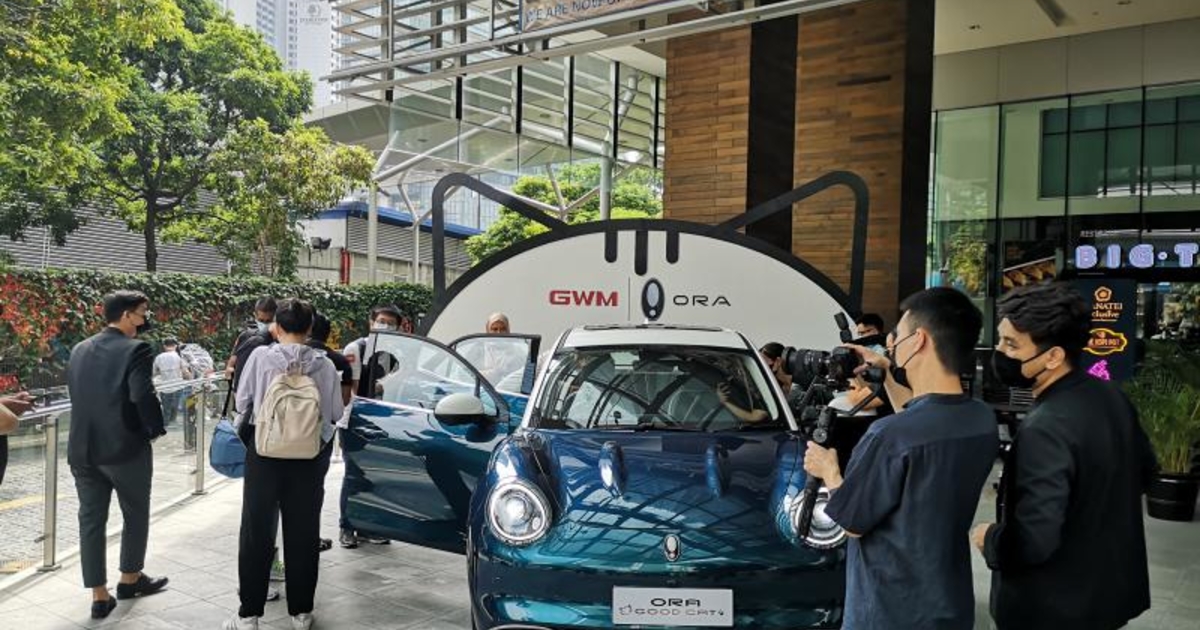
SHANGHAI – China’s major automakers didn’t start making cars until the late 1990s and early 2000s.
After steadily improving engineering, design, quality, while adding scale, at home, more recently with electrified vehicles, they are targeting two key segments long dominated by Japanese brands: China’s gasoline-electric hybrid market and Southeast Asia’s key car markets.
They are starting to deliver results on both fronts.
Hybrids
The hybrid segment of China’s car market has long been the reserved territory of two major Japanese automakers – Toyota Motor Corp. and Honda Motor Co.
But the balance is changing as six major Chinese auto manufacturers – Geely Automobile Holdings, Great Wall Motor Co., GAC Motor Co., Changan Automobile, Chery Automobile Co. and Dongfeng Motor Group – have launched a wave of hybrids since the third quarter of 2021.
GAC has obtained key hybrid technology from Toyota, a joint venture partner, while four of the other automakers claim to have developed hybrid powertrain systems on their own.
The Chinese automakers have set ambitious plans to adopt hybrid powertrain systems across their product lines. They are counting on hybrids to complement their EV and plug-in models to meet China’s increasingly stringent fuel efficiency standards.
Under central China government rules, passenger vehicle makers must cut their fleet-wide fuel consumption from 5.0 liters per 100 km (75.7 mpg) in 2020 to 4.0 liters per 100 km (94.6 mpg) by 2025.
Among the six companies, Geely, the largest private Chinese carmaker, has the most ambitious plans to expand into hybrids. It says it will introduce more than 20 hybrid models from 2021 to 2023.
After the first Geely-badged hybrid — a gasoline-electric version of the Emgrand compact sedan – launched in April, Geely began sales of the first hybrid under its premium Lynk & CO brand last month. The vehicle is a hybrid variant of the Lynk & CO 01 compact crossover.
As challenger brands, Chinese automakers hope to use lower pricing to gain a foothold among hybrid shoppers.
For example, the hybrid version of the Geely Emgrand compact sedan is priced at less than 171,700 yuan ($19,260), while the hybrid Toyota Corolla has a starting price of 207,800 yuan.
Japanese brands command a lion’s share of the hybrid-vehicle market in China. In June, some 91,239 hybrid vehicles were sold across the country, of which 80,851 were produced by Toyota and Honda, according to the China Automobile Dealers Association.
But domestic automakers are making inroads. Last month, hybrid vehicle sales at Geely and Great Wall reached 3,170 and 2,263, respectively.
More major Chinese marques are preparing to roll out hybrid vehicles.
On Thursday, Wuling, China’s largest minibus brand, announced that it has developed its first “people’s hybrid”. By that, it means the vehicle will be affordable for the average Chinese family. Details were not revealed.
Southeast Asia
China’s automakers launched electrified vehicles starting in 2010, well ahead of global rivals. In the first half of the year, they grabbed 40 percent of the country’s electrified car market, the world’s largest.
Outside of China and across Southeast Asia, Japanese brands have long dominated urban streets and highways. But that landscape is beginning to change.
Chinese automakers, aware of their competitive shortcomings with Japanese rivals in the gasoline-powered car market, are exploiting their lead and advantage with EVs to push into Southeast Asia’s key car markets.
The strategy is yielding some early successes. The majority of EVs now sold in Thailand are products from Chinese carmakers. They include EVs from Great Wall and SAIC Motor Corp., produced locally, as well as imports from BYD Co., China’s largest electrified-vehicle manufacturer.
Chinese EV makers are gearing up efforts to expand further in Southeast Asia.
Great Wall last week opened a sales company in Malaysia while BYD added its latest EV model, the ATTO 3 compact crossover, to its product lineup in Singapore.
Chinese automakers’ collective share of the Asian EV market, excluding China, is on track to increase to nine percent by 2023 from four percent in 2021, LMC Automotive, a market consultant, predicted earlier this year.
So far, they are checking the key boxes to get there.